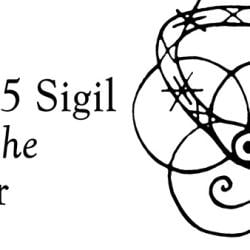So he went to the prayer room behind the stage and got down on his knees, and he realized at that point that he was done getting drunk, he was done getting into fights, that he'd forgiven his prison guards, including the Bird. He went home that night and it was the first night in five years that he didn't have a nightmare about the Bird, and he never had another nightmare the rest of his life. The PTSD was gone in an instant. A year later he went back to Japan and actually looked his guards up and forgave them, face to face.
Although this is not dramatized in the film, that message is still there. When you see the movie, you'll walk out thinking: "Wow, how did he forgive those guys for what they did to him?" That's the message I've been getting from people who didn't know the story, people who are not people of faith … they see everything he went through, and at the end of the film, they explain what happened after the war. It was very important to my father and the family that the faith and forgiveness aspect of the story not be excluded. And I think that Angelina (Jolie) did an absolutely marvelous job in telling this man's story in just two hours and seventeen minutes and not lose any of those threads of the story.
Unbroken is releasing just weeks after the release of the CIA Torture Report. What do you think your dad would have had to say about the report and the larger national conversation it has sparked on the morality of torture?
Well, my dad was apolitical; he never took sides when it came to politics so he would not be commenting on it.
You know, he was grateful to be alive. When the Japanese picked him up they took him to Kwajalein, which was known as Execution Island. American flyers were considered war criminals by the Japanese because of the Doolittle raid on Tokyo early on in the war. So he was taken to the same place that eleven marines were incarcerated and then executed. The fact that one of the Japanese guards on the island recognized him as a sports figure, and suggested that instead of executing him they send him to Tokyo for potential propaganda purposes, you know, he was just grateful to be alive. There was a level of brutality at the Japanese POW camps, without a doubt, but what he experienced from the Bird, was, we believe, specifically targeted to try and break him to do the propaganda broadcast, which he refused to do. He was beaten daily and treated like an animal. This man tried to take away his dignity. So this is different, I believe, than trying to interrogate prisoners to get information to save people's lives. It's two different things. Do we dislike torture? Absolutely. But I'd rather be tortured and live, than be executed.
In this turbulent time in our nation and our world, what words of wisdom or advice do you imagine your dad offering to us today?
Don't give up. Don't give in. All things work together for the good for those who love God and are called according to his purpose.
For more on the movie Unbroken, visit the Patheos Movie Club here.
Photo Credit: Luke and Lisa Zamperini





